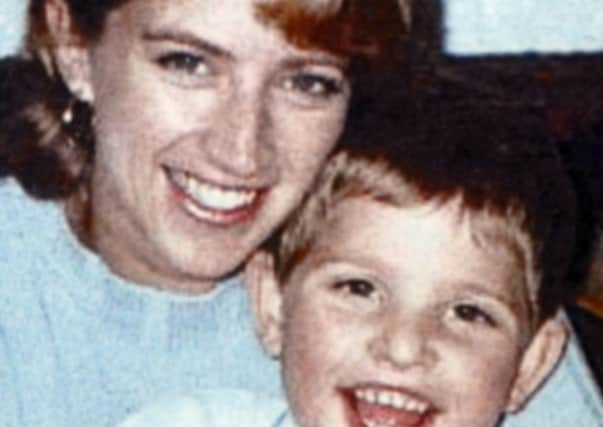Nicola Furbisher: Why are we so hopeless when it comes to talking about death?


Why refreshing?
Well, we don’t talk about death, do we? We shy away from it, we run away from people in the throes of it because we don’t know what to say...
And even years after the death of an individual, some people would still rather pretend the person never existed for fear of saying or doing the wrong thing. How do I know this? Having lost my own son, Thomas, eight years ago, I’m kind of an expert, I guess.
Advertisement
Hide AdAdvertisement
Hide Ad“What do you want of people?” Eddie Mair asked Peston, and it made me think; what do I want?
I want:
People to speak my boy’s name. Speak it and you will never upset me. Never. Watch me – my heart and eyes will fill with joy. Speak his name and I will KNOW that he existed; that he isn’t just a beautiful angel in my dreams, a little boy I just made up.
Don’t be afraid of asking me questions. I will answer them. Ask away. Please ask.
If you don’t know me – and ask whether I have any children – you will find yourself mortified. Don’t worry. I’m used to it (the deep breath, the “OK, here we go, I’m about to make things very awkward for a sec” bit). Just don’t clam up and change the subject and regret having asked. It’s OK. Really it is.
Advertisement
Hide AdAdvertisement
Hide AdI love talking about your children, but please, PLEASE ask me about mine. And don’t crease your face with pity when I say I gave birth to no other child. My boy was all, everything and the world to me. He was, is, all I ever needed.
Don’t make me justify this or make me feel as if I have somehow failed, in some way, because I don’t have a second to fall back on. (How ridiculous, really, the very assumption that a second child would ease the loss of a first).
When you discover that he had special needs, don’t change the tone of your voice as if “oh, that explains it”; as if his death was some kind of blessing. It wasn’t. And don’t imagine you know what he was like because of those wretched words “special needs”.
I hate them. I hate using the damned phrase. Because I see people form an image in their mind that is inevitably totally, utterly wrong – and then they become almost become relieved for me. There is no such relief.
Advertisement
Hide AdAdvertisement
Hide AdKnow this. My heart is, was and always will be, broken. That’s OK by me, by the way.
Don’t say I’m brave.
I’m not. To be brave is to have a choice. One thing I learned is how bloody-minded the biological urge to survive actually is. You go on. You go on. You go on. That’s fine by me too.
Don’t ask how I can be so OK “bearing in mind what’s happened”. (They mean bearing in mind my son is dead. Dead. Roll it round your mouth. Say it, for god’s sake. It wasn’t a “passing” or a “crossing over” it was a death. Thomas is dead). My life is full, wonderful and filled with love because he was in the world and he inspires me and walks by my side in everything I do.
You might see me cry, but not so much now. The tidal waves don’t consume me as they once did, but play me a piece of music that was special for him, for me, and I might not be able to stop the tears. This is also fine. Just hand me a tissue and give me a hug.
Advertisement
Hide AdAdvertisement
Hide AdAlso, please understand, grief is something that never goes away. It isn’t to be “got over”. Why would I want it to be over – when love is the cause of it?
Here’s a truth: the grief doesn’t hurt half as much as the people, so fearful of death, of talking about death, of upsetting someone bereaved, they would prefer (albeit unintentionally) to deny my boy to me over and over again.
That’s what I want.